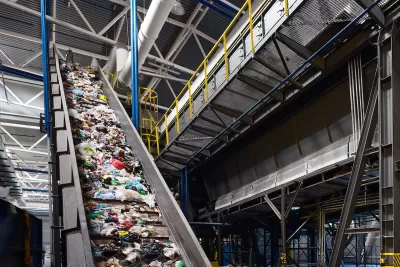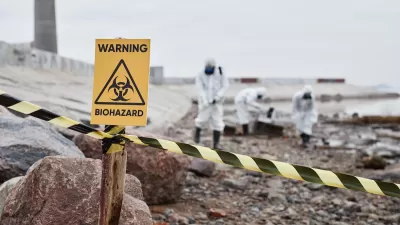Recycling offers modest environmental benefits but faces significant challenges in effectiveness and scalability, requiring systemic changes like reducing plastic production and exploring alternative waste reduction strategies.

Recycling has long been championed as a solution to reducing plastic waste and conserving resources, but its effectiveness remains fraught with challenges. Despite its good intentions, the world produces over 507 million tons of plastic annually, with less than 10 percent recycled globally. In the U.S., only a fraction of recyclable materials—such as glass, cans, and plastics—avoid landfills due to inadequate infrastructure and low participation rates. Compounding the problem, most plastics, even those bearing the familiar recycling symbol, cannot be effectively recycled, often ending up in landfills or polluting ecosystems.
As reported by Julia Musto, experts argue that recycling alone cannot solve the growing plastic waste crisis. Greenpeace and other organizations highlight that the plastics industry has long promoted recycling while increasing production, which is projected to triple by 2050. Toxicity concerns also grow with recycling, as many plastics leach harmful chemicals. Critics like MIT’s Andrew McAfee suggest that focusing on landfill disposal may be more environmentally sound than perpetuating ineffective recycling practices, given the minimal reduction in greenhouse gas emissions achieved through recycling.
While recycling has limitations, it still offers modest environmental benefits, such as saving energy and cutting water use compared to alternatives like incineration. However, experts emphasize the need for systemic change to make a meaningful impact. This includes reducing plastic production, investing in better recycling infrastructure, addressing contamination issues, and exploring complementary waste reduction strategies like composting, upcycling, and reusable systems. Without significant reforms, the environmental crisis driven by plastic waste will continue to escalate.
FULL STORY: Is recycling worth it?

Trump Administration Could Effectively End Housing Voucher Program
Federal officials are eyeing major cuts to the Section 8 program that helps millions of low-income households pay rent.

Planetizen Federal Action Tracker
A weekly monitor of how Trump’s orders and actions are impacting planners and planning in America.

Ken Jennings Launches Transit Web Series
The Jeopardy champ wants you to ride public transit.

USDOT Waters Down Self-Driving Car Regulations
The agency is reducing reporting requirements for autonomous vehicles and cars with self-driving features, prompting concern among safety advocates who say transparency is essential to the safe deployment of AV technology.

‘Minnesota Nice’ Isn’t so Nice When You Can’t Find a Place to Live
The Economic Development and Housing Challenge Program can help address the scourge of homelessness among Indigenous people.

NYC Open Streets Organizers Call for City Support
The number of open streets projects has dropped year after year as volunteer groups struggle to fund and staff them.
Urban Design for Planners 1: Software Tools
This six-course series explores essential urban design concepts using open source software and equips planners with the tools they need to participate fully in the urban design process.
Planning for Universal Design
Learn the tools for implementing Universal Design in planning regulations.
Heyer Gruel & Associates PA
Ada County Highway District
Institute for Housing and Urban Development Studies (IHS)
City of Grandview
Harvard GSD Executive Education
Toledo-Lucas County Plan Commissions
Salt Lake City
NYU Wagner Graduate School of Public Service





























